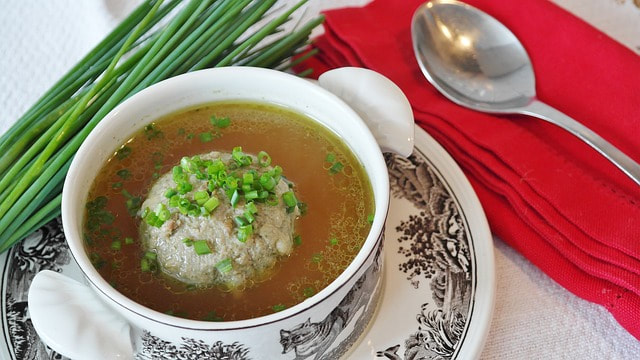Benefits of Bone Broth: For Weight Loss, Gut Health, & MoreBone broth—a soup-like liquid created by slow-simmering animal bones in water—is thought to be associated with many health benefits. What does the science say?
would never have recommended in this situation: some ham and cheese, maybe some heavy bread. He seemed confused when she asked whether tonic water and crackers might be a better idea.
I like this story because it reminds me that every culture has its own expectations about what foods or herbs will help you heal. A common one in our culture, for example, is the belief that soup is a good thing to have when you’re sick. As I learned in researching this article, this is a belief shared by many cultures. In this article, I’ll focus on the potential health benefits of bone broth—a cross-cultural home remedy that just may have some good science backing it up. Before reading on, if you're a therapist, coach, or wellness entrepreneur, be sure to grab our free Wellness Business Growth eBook to get expert tips and free resources that will help you grow your business exponentially.
Are You a Therapist, Coach, or Wellness Entrepreneur?
Grab Our Free eBook to Learn How to
|
Are You a Therapist, Coach, or Wellness Entrepreneur?
Grab Our Free eBook to Learn How to Grow Your Wellness Business Fast!
|
Terms, Privacy & Affiliate Disclosure | Contact | FAQs
* The Berkeley Well-Being Institute. LLC is not affiliated with UC Berkeley.
Copyright © 2024, The Berkeley Well-Being Institute, LLC
* The Berkeley Well-Being Institute. LLC is not affiliated with UC Berkeley.
Copyright © 2024, The Berkeley Well-Being Institute, LLC




